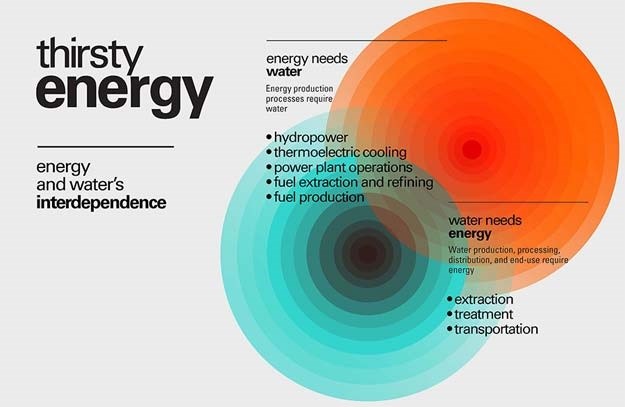
Top stories






More news


ESG & Sustainability
Redisa calls on govt to fix South Africa’s “broken” waste management system


























A study in South Africa that forms part of the World Bank's Thirsty Energy Initiative has found that major inter-basin transfers support water for power in South Africa.
"These transfers play a critical role in the power sector in the country, and you see that water from different basins can end up supplying the water needs of a particular energy area," says Dr Rodriguez.
Launched in January 2014, Thirsty Energy is an initiative that promotes sustainable water and energy resource management by working with governments and partners globally. "We are currently working in South Africa, China and Morocco to integrate water constraints into the energy sector and better address water and energy challenges to ensure a sustainable development of energy resources," Dr Rodriguez explains.
"Our work in South Africa incorporated water constraints into an existing energy model and examined the trade-offs with other water users. The exercise revealed many interesting results."
These include that once the true costs of water supply are incorporated into the energy model, the model chooses dry cooling for most coal power plants. "Therefore, dry cooling makes economic sense in South Africa even if it decreases the efficiency of the power plant. Bringing the true costs of supply water to the sector increases the costs of the system," says Dr Rodriguez.
"I look forward to discussing the findings from Thirsty Energy's work in South Africa and how integrating water into energy modeling reveals profound connections between the resources, and changes the energy outcomes and operational decisions," he says.
"The water-energy nexus is complex and wide-ranging. Water and energy affect all other sectors, are critical to the economy and human well-being. In order to ensure water and energy access for all, the resources will have to be managed in an integrated manner to capitalise on efficiencies and synergies. Coordinating management will increase sustainability in the future and reduce vulnerability to resource scarcity or price fluctuations."
"Solutions should be grounded in country-specific contexts instead of remaining at the global level so that they account for important nuances in politics, economics, and governance. We have to acknowledge the complexity of the issue at stake and how tackling the problem through collaborative approaches can help us all achieve water, energy and food security," Dr Rodriguez concludes.
Water resource management will form an important part of the programme of the African Utility Week and Clean Power Africa conference and trade exhibition that will take place in Cape Town from 17-19 May 2016.
